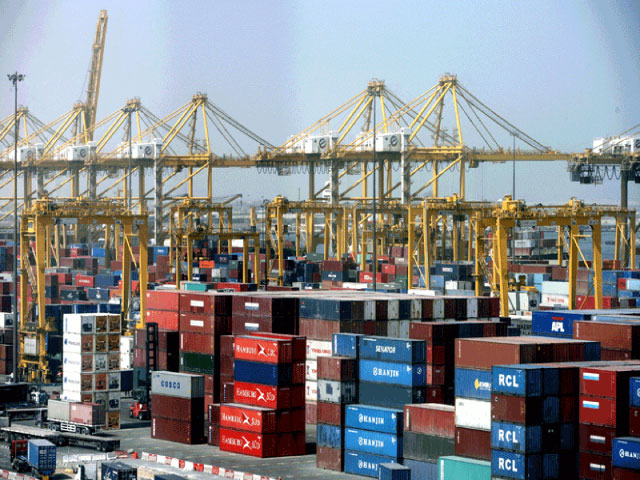
The Federal Government’s policies on importation of rice and motor vehicles, as well as the new Central Bank of Nigeria (CBN) policy on foreign exchange, are taking a toll on the operating capacity of the country’s seaport terminals, with many now operating at between 30 percent and 40 percent below capacity.
Industry watchers say that most terminals at the port now operate below capacity due to the reduction in the number of ships that call the port, which results in a decline in the volume of imported cargo at the port.
Formerly, an average of 100 vessels berthed at the port monthly, with various cargoes in the Lagos pilotage district.
This number has however decreased in the past three months, to an average of 40 vessels per month. The implication is that terminals which have the capacity to handle three to four vessels simultaneously now handle one or two vessels in a week.
BusinessDay invetigations reveal that the most affected are the break bulk and roll-in, roll-out (RoRo) terminals. These are specialised terminals built with equipment to handle bulk cargoes such as wheat, rice, salt and sugar, while RoRo terminals are equipped to handle imported new and used vehicles which come in RoRo vessels.
“From the pilotage report, one can see that fewer vessels are now coming into Nigeria and there has been a reduction in the volume of cargo coming, particularly in the last few months.
” This is because government policies are having an adverse effect on cargo throughput coming into the port,” Vicky Haastrup, chairperson, Seaport Terminal Operators Association of Nigeria (STOAN), said recently in Lagos.
Haastrup said some of these policies, such as the Central Bank policy on access to foreign exchange by importers of 41 selected items and quota system on the importation of certain goods, especially rice and fish, are to be blamed for the situation in the port. “A lot of terminals are operating at 30 to 40 percent of their usual capacity,” he said.
“The impact is that goods will be diverted to the Republic of Benin and that is exactly what is happening now. Ships containing rice and other cargo are being diverted to Cotonu and these cargoes will find their way back to the Nigerian market,” she explained.
Haastrup further observedthat, “the cost of some imported goods has gone up. These policies are creating a situation where these goods will become very expensive and unaffordable for ordinary Nigerians.”
Michael Ubogu, managing director, Micura Stevedoring Services, who confirmed that the shipping industry has been experiencing a downturn, due to the CBN policy on foreign exchange restrictions and lack of policy direction by the government, also said the recent downturn in volume of imports, especially in the first half of the year, has shown that the shipping industry is among the worst hit by the economic downturn in the country.
Ubogu also blamed the failure of President Muhammadu Buhari to appoint people into strategic positions in good time, and the slow implementation of the budget, for the low ebb of business activities in the port and the economy at large.
“No importer is sure of the mind of the government and no one wants to import, only for such import to be placed on restriction list.”
Also in affirmation is Etienne Rocher, chief executive officer of Tin-Can Island Container Terminal (TICT), who reportedly blamed the unsteady nature of the dollar/naira exchange rate for the high cost of imports, added that the volume of trade in the past few months has witnessed about 15 percent reduction when compared to the same period in 2014. This, he said, is putting pressure on terminal operators, who now find it difficult to meet their targets.
AMAKA ANAGOR-EWUZIE
http://businessdayonline.com/2015/09/port-terminals-operating-at-40-below-capacity-as-cargo-volumes-decline/
